Chris Dolce
How early the first accumulating snow of the year occurs across the United States depends on factors like your geographic location, elevation and weather patterns from year to year.
For some, that means the earliest measurable snow on record has happened in September or even late August, while others haven't seen their first accumulating flakes pile up until November.
Plotted on the map below is the month when the earliest measurable snow was recorded for select cities across the Lower 48 states. The National Weather Service considers measurable snow to be an accumulation of 0.1 inches or more.
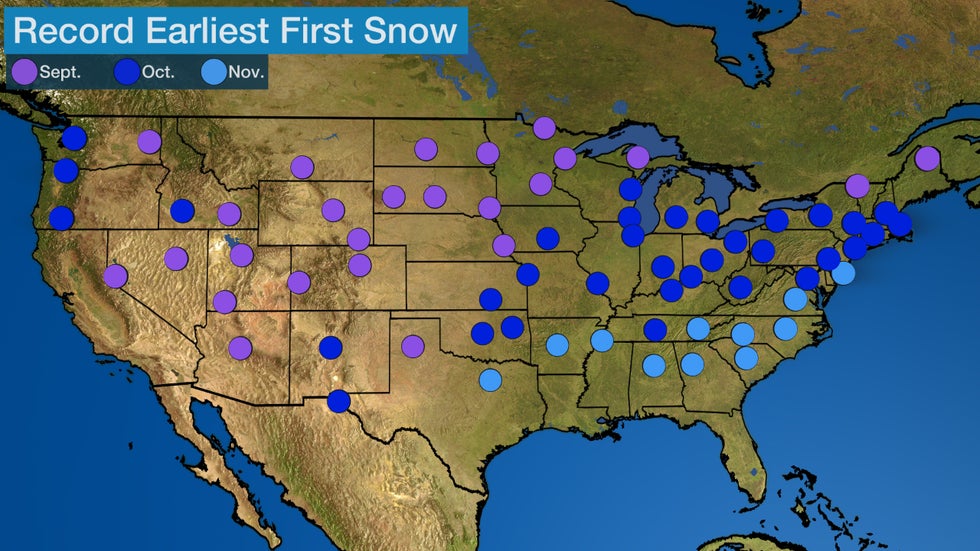 The colored dots represent the month of the earliest measurable snow (0.1 inches or greater) for the locations shown.
The colored dots represent the month of the earliest measurable snow (0.1 inches or greater) for the locations shown.September is when parts of the West and northern tier have seen their earliest accumulating snow: Many locations from the Rockies to the northern Plains, northern Great Lakes and northern New England have received their earliest measurable snow in the month. One outlier is Amarillo, Texas, which had its earliest first accumulation on the next to last day of the month in 1984.
Although it's not shown, Great Falls, Montana, once received measurable snow as early as Aug. 22, 1992. And it wasn't just a dusting – it was an 8-inch snowstorm.
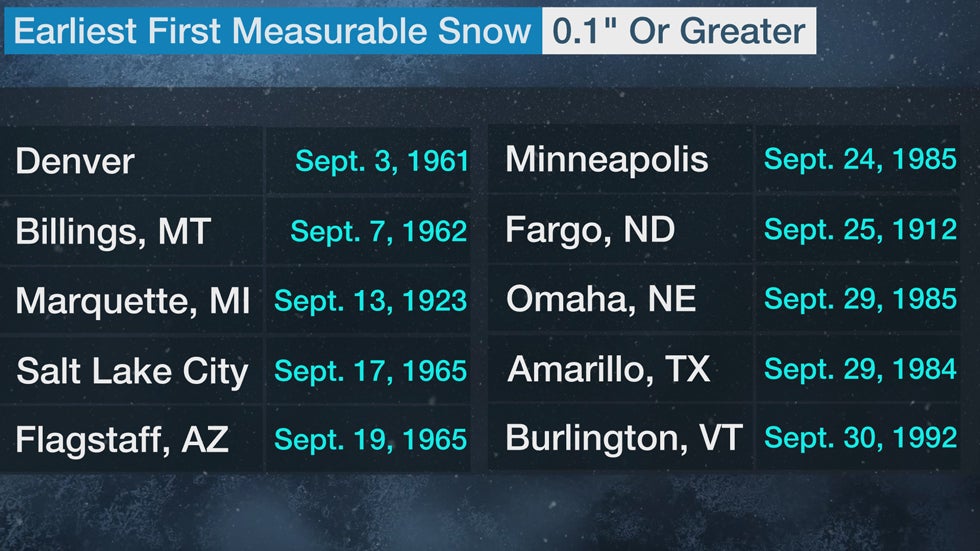 September's Earliest First Measurable Snow Cities
September's Earliest First Measurable Snow CitiesOctober is when many cities from the Midwest to the Northeast have received their earliest accumulating snow: Much of the Northeast's Interstate 95 corridor from Boston to Washington, D.C., saw its earliest first measurable snow on Oct. 10, 1979. The exception is New York City, where the record was set nearly 150 years ago on Oct. 15.
Chicago and Detroit are two Midwest cities that saw their earliest measurable snow in this century, both on Oct. 12, 2006. Even more recent is Kansas City, which had its earliest first accumulating snow just a few years ago on Oct. 14, 2018.
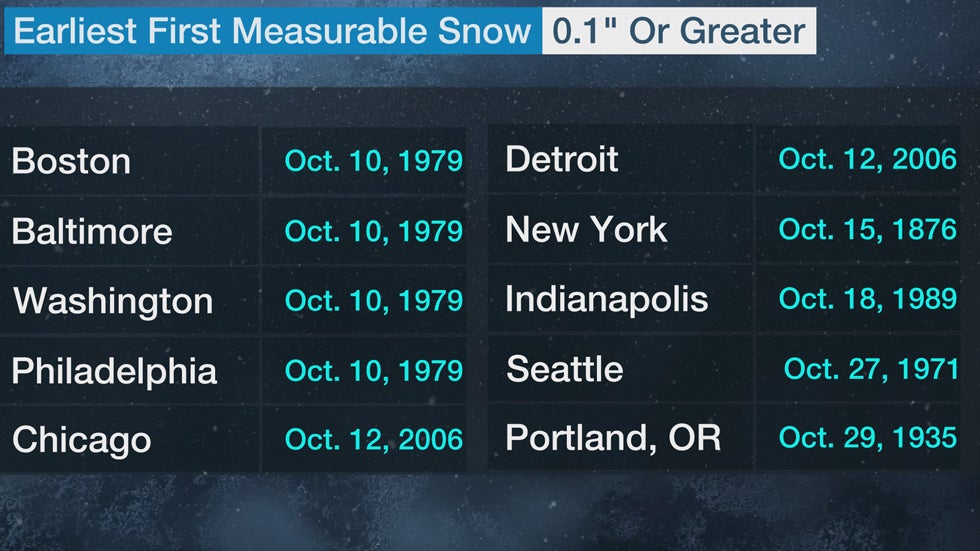 October's Earliest First Measurable Snow Cities
October's Earliest First Measurable Snow CitiesNovember is when much of the South has had its earliest measurable snow on record: Many cities along the interstates 20 and 40 corridors have received accumulating snow as early as November.
Imagine kicking off the month with a coating of snow in Dallas-Fort Worth or a 3-inch blanket of snow in the South Carolina capital before Thanksgiving.
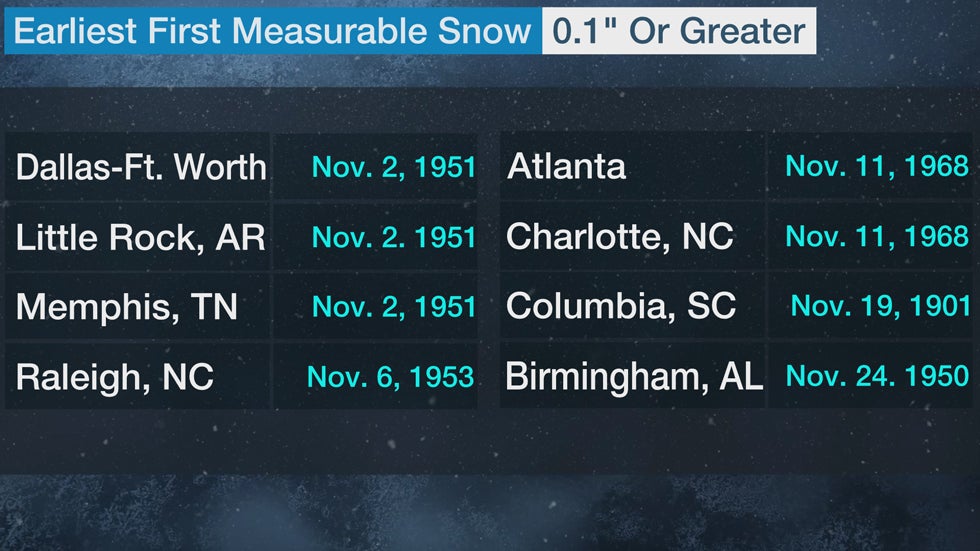 November's Earliest First Measurable Snow Cities
November's Earliest First Measurable Snow CitiesThe average first accumulating snow typically arrives later in the season: Of course, all of the dates mentioned above are on the record-breaking early end of the spectrum.
By October, areas from the higher elevations of the West into the Northern Plains, northern Michigan and northern new England typically see the first measurable snow.
An even larger portion of the country experiences its first measurable snowfall by the end of November or early December, including from the Northeast into the Midwest and Southern Rockies.
The South doesn't see accumulating snow every year, but on average, January and February are the most favored months for at least a coating of snow.
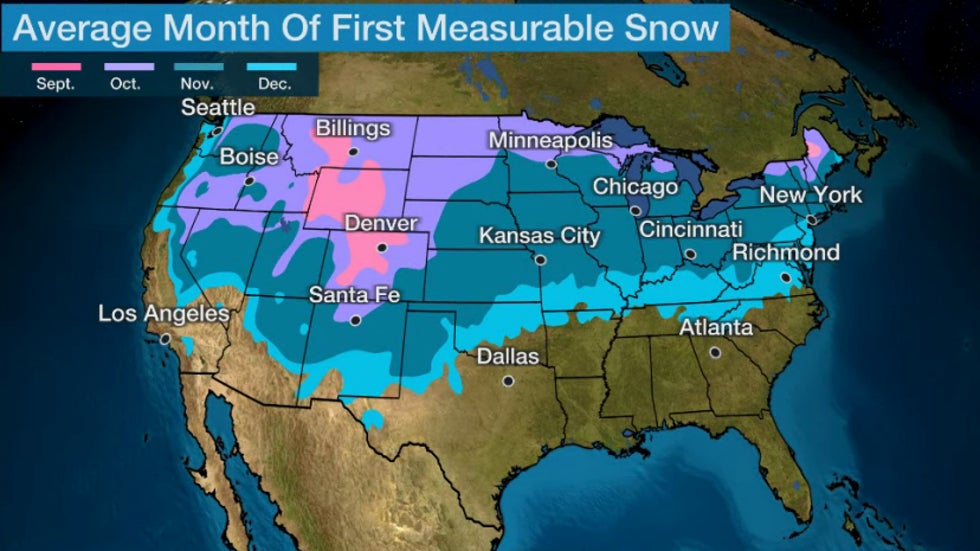 Month of the average first accumulating (0.1 inches or greater) snowfall of the season, according to 30-year average statistics.
Month of the average first accumulating (0.1 inches or greater) snowfall of the season, according to 30-year average statistics.Chris Dolce has been a senior meteorologist with weather.com for over 10 years after beginning his career with The Weather Channel in the early 2000s.
The Weather Company’s primary journalistic mission is to report on breaking weather news, the environment and the importance of science to our lives. This story does not necessarily represent the position of our parent company, IBM.
The Weather Company’s primary journalistic mission is to report on breaking weather news, the environment and the importance of science to our lives. This story does not necessarily represent the position of our parent company, IBM.

No comments:
Post a Comment